#book reviews
Culture Consumption: January 2022
Hi, lovelies. Here’s my month in books, movies, television, games, and podcasts.
Books
“I realize I want to hear my voice and only mine. Not the voice of my voice within a cacophony of old pains. Just min, now.”
Jenny Slate’s Little Weirds is a strange and beautiful book, one that feels like a blending of poetry and memoir. The series of vignettes in this collection encapsulate small moments,…



Lily King follows up her 2020 novel Writers and Lovers with her first story collection, Five Tuesdays in Winter. Our critic Heller McAlpin says the book demonstrate’s King’s range, and “by range, we’re talking emotional range in addition to time and place. Five Tuesdays in Winter features stories that pull you in instantly and make you wonder what the author is going to spring on you next.” Read the full piece here!
– Petra
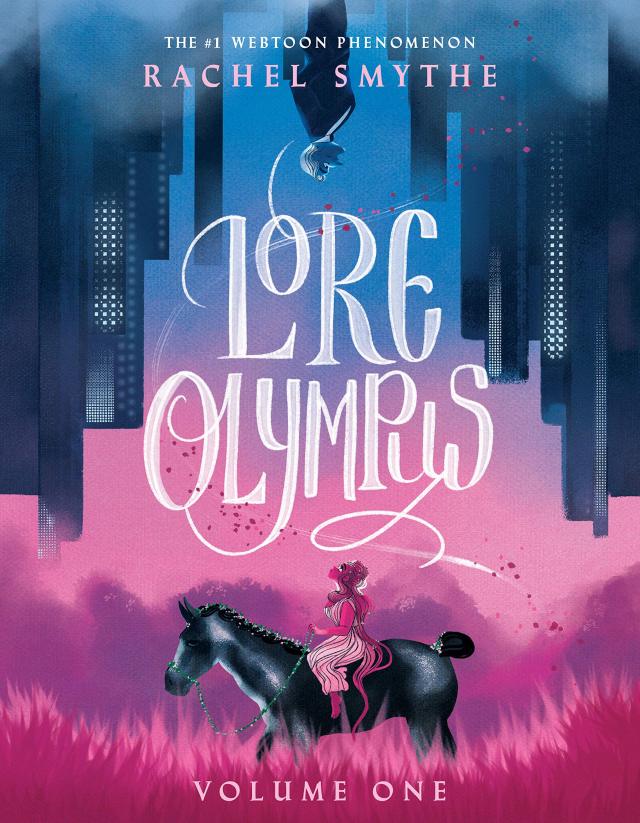
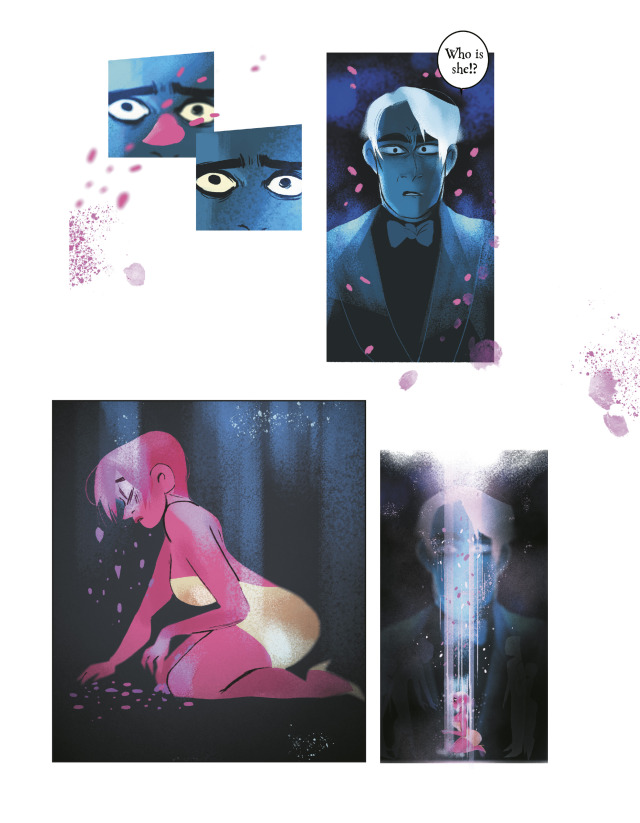

The Greek gods – they’re just like us! Rachel Smythe’s new Lore Olympus vol. 1, a dead-tree edition of her hit webcomic, transplants Hades and Persephone to a world of sportscars, slick suits and “apology donuts.” Our critic Etelka Lehoczky says “The diverse, subtle ways Smythe reiterates her central question — which can be summed up as something like, "How have we changed in the past two millennia? How have we stayed the same?” — make this book a great read for anyone who’s thought about the stubbornness of human nature and the resilience of classic tropes.“ Check out her full review here!
– Petra


Reprieve is a hybrid of smart lit-fic and pulpy horror, says our critic Gabino Iglesias – overstuffed and slightly unwieldy, but held together by James Han Mattson’s storytelling skills.
“Taken all together, it’s a bit much at times, though luckily, Mattson always maintains control,” he says. “Still, readers should enter at their own risk. The experience might be harrowing — but just like Quigley House, the reward at the end is worth it.” Check out the full review here.
– Petra
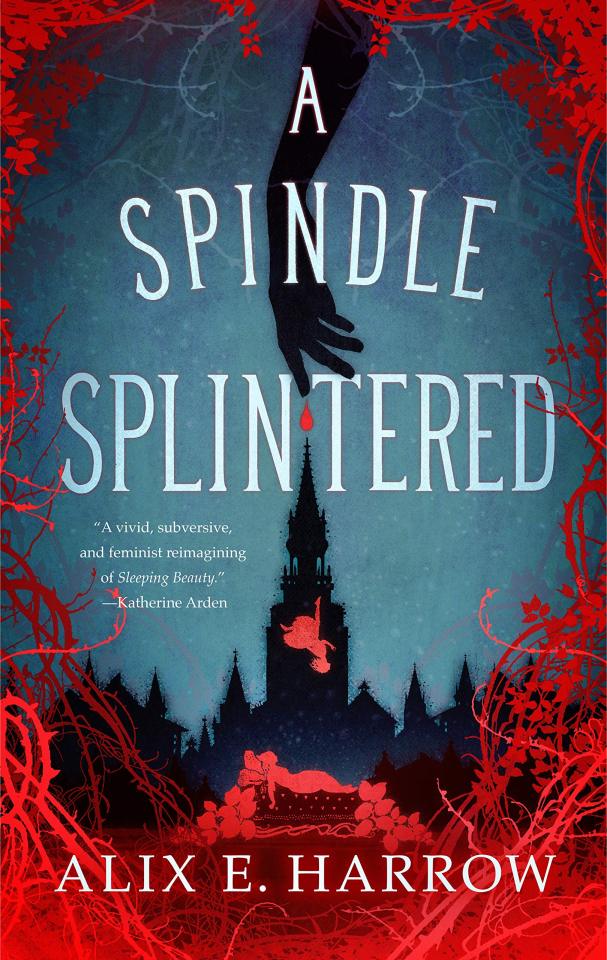
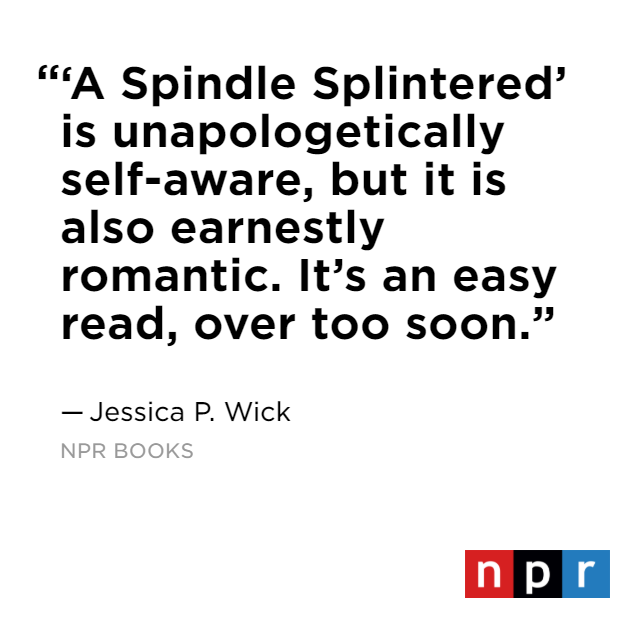
Alix E. Harrow’s new A Spindle Splinteredbreaks down “Sleeping Beauty” and rebuilds it – no longer is our protagonist under a curse from a bad fairy, now she’s a modern teenager doomed to an early death because of the aftereffects of an industrial accident.
“This is a slender novella but it spins a strong and captivating tale. It’s funny, sharp, queer, and deeply loves its source material,” says critic Jessica P. Wick – you can find her full review here.
– Petra
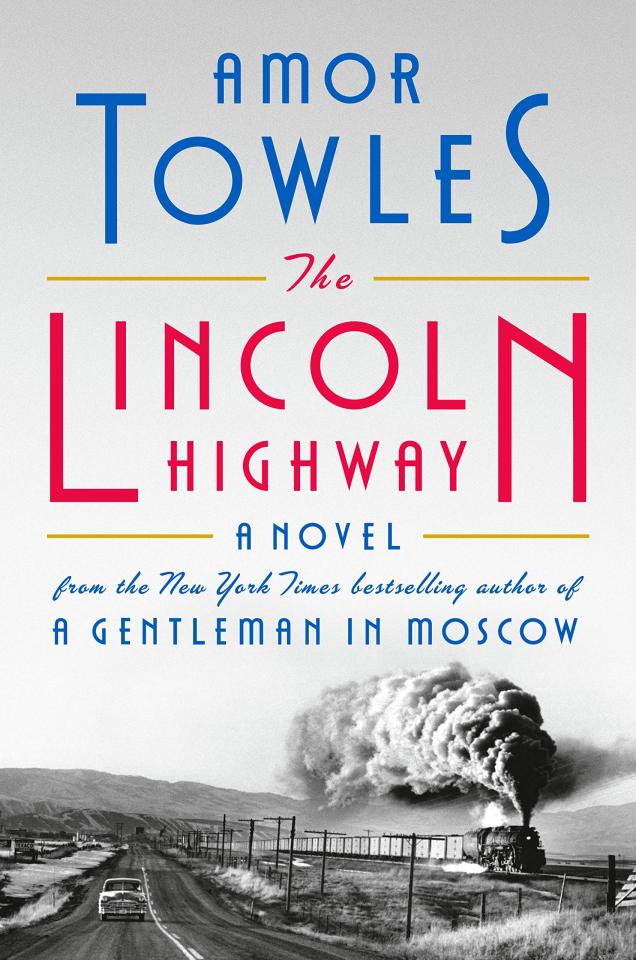

Amor Towles new novel, set in 1954, follows a foursome of rowdy kids (some freshly released from reform school) who pile into a beat-up Studebaker and hit the road in search of a better life. Critic Heller McAlpin calls it “a joyride … hitch onto this delightful tour de force and you’ll be pulled straight through to the end, helpless against the inventive exuberance of Towles’ storytelling.” Find her full review here!
– Petra

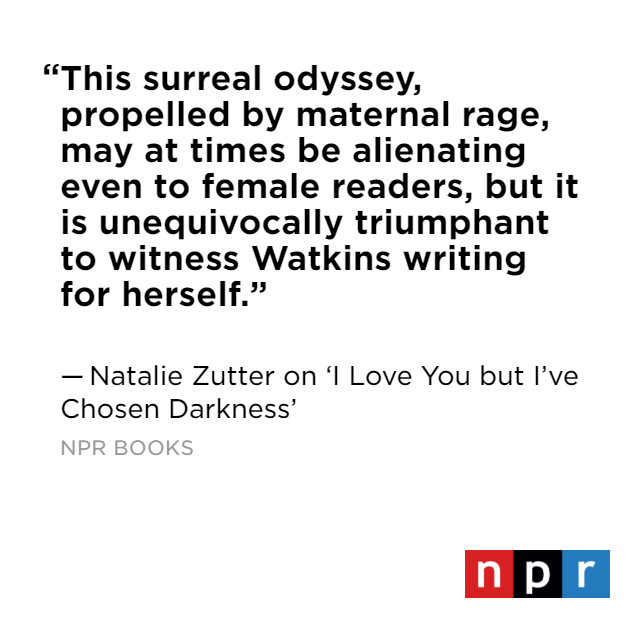
A few years ago, author Claire Vaye Watkins went viral with an essay called “On Pandering,” in which she wrote about how her debut story collection Battleborn was written “for white men, toward them. If you hold the book to a certain light, you’ll see it as an exercise in self-hazing, a product of working-class madness, the female strain. So, natural then that Battleborn was well-received by the white male lit establishment: it was written for them.” She’d had a baby, and “that, patriarchy says, is not the stuff of art.”
But in her latest, I Love You but I’ve Chosen Darkness, critic Natalie Zutter says Watkins is writing adamantly and fiercely for herself. This surreal, autofictional odyssey about a character (also named Claire) who abandons her family after having a baby, opting instead for a road trip through sites important in her past, shows readers that “that one does not have to choose the lesser of two evils. A woman can want motherhood and the rest of her life, not or.”Check out the full review here!
– Petra


Our reviewer Danielle Kurtzleben says Anita Hill’s new Believing isn’t a book about Hill, but it is “a book only she could have written.” Check out her full review here– and you can find an interview with Hill about her work with the Hollywood Commission on harassment in the entertainment industry here.
– Petra


Percival Everett’s new The Trees imagines a string of modern-day killings in the town of Money, Mississippi – where Emmett Till was brutally murdered in 1955 – killings that echo what happened to Till.
“No work of art will ever right justice denied, but The Trees does a spectacular job of resurrection,” says our critic Carole V. Bell – you can find her full review here, and Scott Simon’s interview with Everett is here.
– Petra
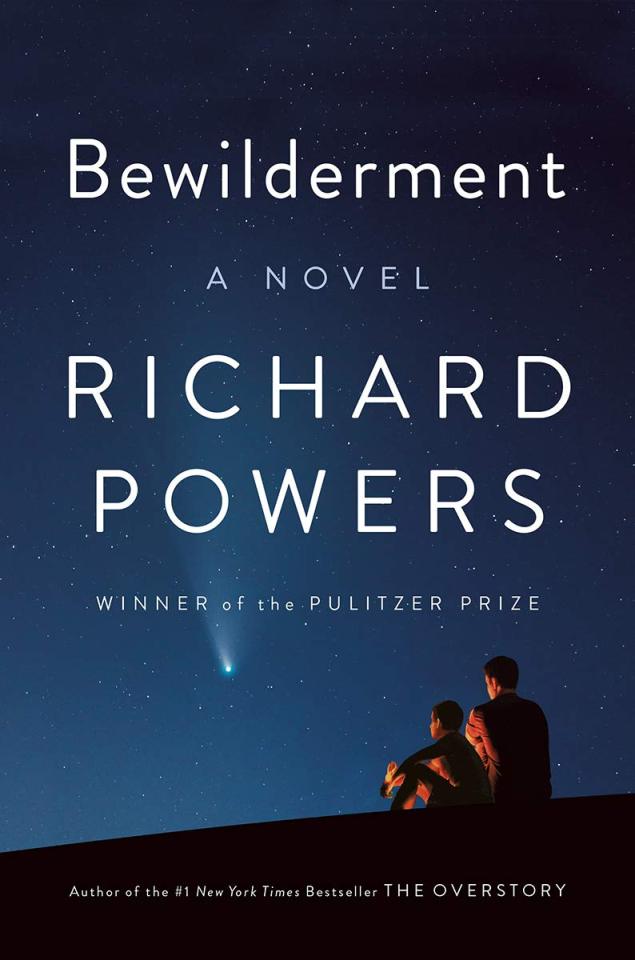

Richard Powers got on the National Book Award longlist for Bewilderment before the book was even officially published – and according to critic Heller McAlpin, he deserved the nod. “With this novel, Powers continues to raise bold questions about the state of our world and the cumulative effects of our mistakes,” she says. Check out her full review here.
– Petra

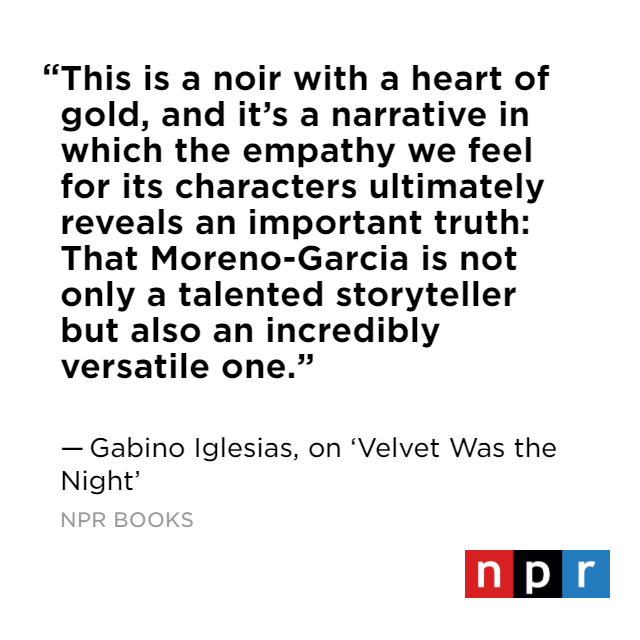
Silvia Moreno-Garcia follows up the stylish ‘50s horror of last year’s hit Mexican Gothic with a gritty noir set in 1970s Mexico City – Velvet Was the Night follows two small-time sad-sacks, Maite and Elvis, who get caught up in some bad stuff that’s far bigger than they are. Our critic Gabino Iglesias says “Moreno-Garcia’s work is like a wild pendulum that swings from horror to fantasy to noir, and she does them all equally well.” Check out his full review here!
– Petra

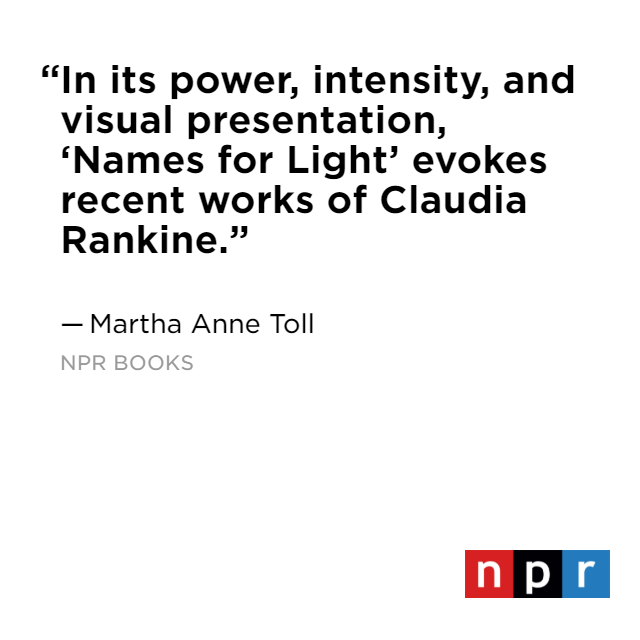
Thirii Myo Kyaw Myint was born in Myanmar – formerly Burma – and grew up there until her family emigrated when she was eight, moviing to San Jose, Calif., “a place with strip malls, ranch-style houses, and foothills in every direction,” a place she still has “no name for.”
Her new memoir, Names for Light, covers four generations of her family’s history. “Composed in compressed, laser-sharp interrogations of immigration and prejudice, colonialism and inheritance, Names for Light reads like poetry,” says our critic Martha Anne Toll – you can find her full review here.


There aren’t many Indo-Mauritian authors on the world stage, and still fewer who write their debut novels past the age of 70 – so Vinod Busjeet is a rare treasure.
Busjeet is descended from Indian laborers brought to Mauritius by the French and English colonizers who ruled the island for hundreds of years; his novel, through the life of its fictional protagonist, deals with that critical history and the complicated tapestry of cultures that covers Mauritius.
“Small flaws mar the narrative,” says critic Jenny Bhatt, “nevertheless, as an intelligent, witty, and compassionate rendering of a full and rich world, it is a much-needed addition to the small body of contemporary Mauritian literature.” Read her full review here.
– Petra
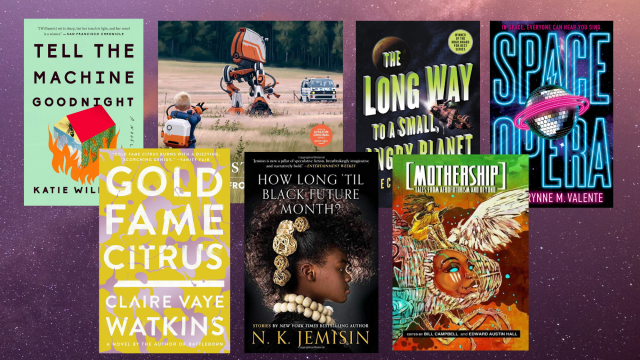
“"Of all the genres out there, science fiction is the one that’s supposed to cause trouble. It’s built to ask uncomfortable questions and burn stuff down,” says critic Jason Sheehan. “It is as much the kid in the back of the classroom sketching rocket ships in the pages of his history book as it is the other kid out in the parking lot slashing the tires of all the teachers’ cars.”
As part of our summer of celebrating the last ten years of SF/F – and I promise, the final summer poll list is coming SOOOOOON, tomorrow, even! We put it off a little to give some breathing room to all the awful news coming out of Afghanistan – we asked Jason to write about the books that, for him, represented the revolutionary changes that have happened in SF/F over the past decade. And here’s what he had to say!
– Petra

“There’s a difference between authors who set out to write a novel and authors who set out to tell a story,” says critic Gabino Iglesias. “I don’t have the space to explain that difference here, but I know some of you nodded as soon as you read that. Maryse Condé is the type of author who sets out to tell a story — and writes superb novels in the process.” Her latest is Waiting for the Waters to Rise–and you can find Gabino’s full review here.
– Petra
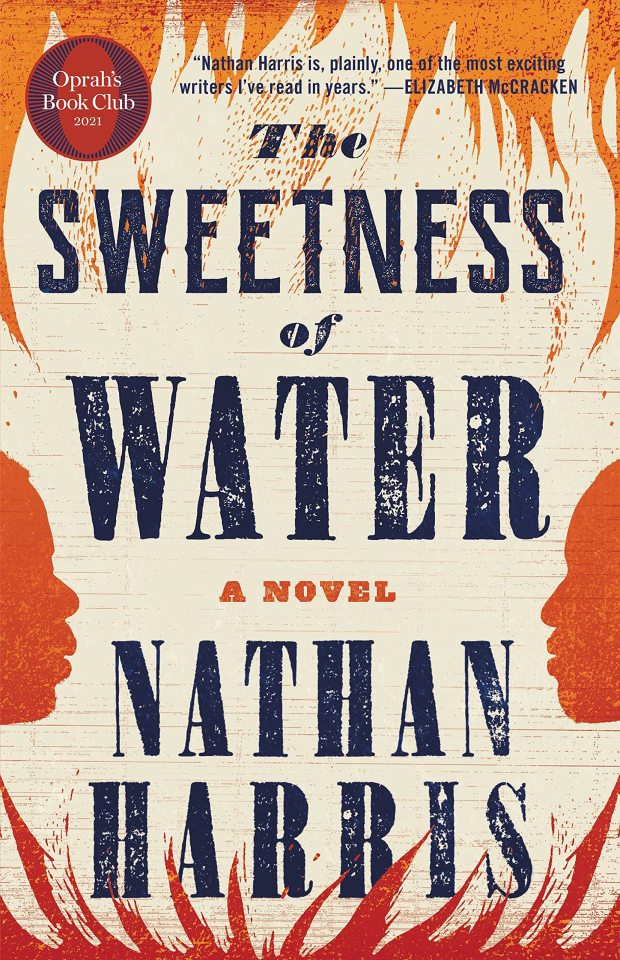

“It’s not often we revisit a book that slipped through the cracks when it first came out (okay, or that we admit we missed a big book) but Nathan Harris’s debut The Sweetness of Waterhas turned out to be THE book of the summer – an Oprah pick, longlisted for the Booker Prize, it’s even on President Obama’s summer reading list!
So we asked critic Carole V. Bell to take a look at the book, and think about why it’s having such a moment right now. Part of it, she says, is because The Sweetness of Water "taps into America’s longstanding and profound thirst for fantasies of racial reconciliation — stories in which Black people and white people find salvation together, bonding in the face of the egregious extreme racism of others.” But there’s much more to it – which you can read here.
– Petra
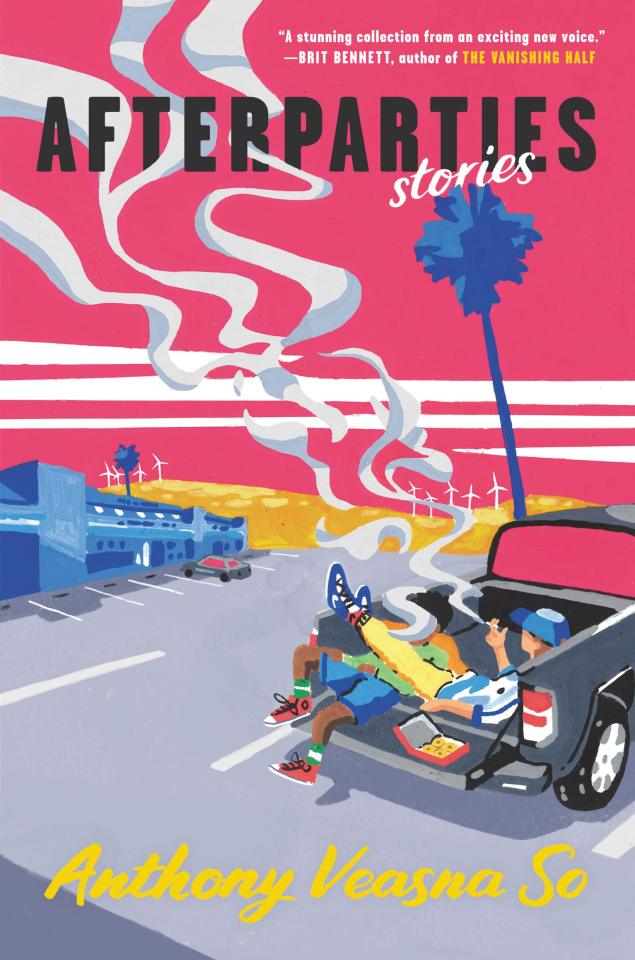

Anthony Veasna So died unexpectedly in December 2020 – but in his debut collection Afterparties, he left us an indelible collection of characters that will live on. “His people are philosophical, queer, angry, bossy, romantic, unfaithful, filial, and defiant survivors,” says reviewerThúy Đinh – check out her full piece here.
Our own Andrew Limbong also profiled So – that story is here.
– Petra
In academic circles, we have a half-joking-but-not-really saying: “All Research Is Me-Search,” and Leigh Cowart’s new book has taken that dictum to titanic new heights and visceral, evocative depths.
Cowart is a former ballet dancer, a biologist who researched Pteronotus bats in the sweltering jungles of Costa Rica, and a self-described “high-sensation-seeking masochist.” They wrote this book to explore why they were like this, and whether their reasons matched up with those of so many other people who engage is painful activities of their own volition, whether for the pain itself, or the reward afterward. Full disclosure: Leigh is also my friend, but even if they weren’t, this book would have fascinated and engrossed me.
Hurts So Good is science journalism from a scientist-who-is-also-a-journalist, which means that the text is very careful in who and what it sources, citing its references, and indexing terms to be easily found and cross-referenced, while also bringing that data into clear, accessible focus. In that way, it has something for specialists and non-specialists, alike. But this book is also a memoir, and an interior exploration of one person’s relationship to pain, pleasure, and— not to sound too lofty about it— the whole human race.
The extraordinarily personal grounding of Hurts So Good is what allows this text to be more than merely exploitative voyeurism— though as the text describes, exploitative voyeurism might not necessarily be a deal-breaker for many of its subjects; just so long as they had control over when and how it proceeds and ends. And that is something Cowart makes sure to return to, again and again and again, turning it around to examine its nuances and infinitely fuzzy fractaled edges: The difference between pain that we instigate, pain that we can control, pain we know will end, pain that will have a reward, pain we can stop when and how we want… And pain that is enforced on us.
Read the rest of “Review: Hurts So Good: The Science and Culture of Pain on Purpose, by Leigh Cowart”atTechnoccult.net
‘The Hellebore Guide to Occult Britain and Northern Ireland ’ and 'The Atlas of Dark Destinations’ ~ Book Reviews
‘The Hellebore Guide to Occult Britain and Northern Ireland ‘ and ‘The Atlas of Dark Destinations’ ~ Book Reviews
The Hellebore Guide is produced by the same team that created the very popular Hellebore zine that has blossomed in the recent renaissance of indie specialist-interest zines and the revival of attention to occulture and folklore. They have taken their sphere of interest and distinctive design aesthetic forward into book format with this very handy and beguiling gazetteer of British ritual,…
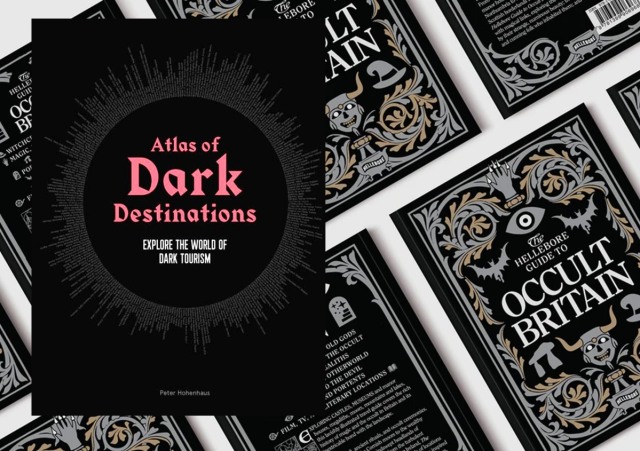
Treasury of Folklore: Woodlands & Forests: Wild Gods, World Trees and Werewolves by Dee Dee Chainey & Willow Winsham - Book Review
Treasury of Folklore: Woodlands & Forests: Wild Gods, World Trees and Werewolves by Dee Dee Chainey & Willow Winsham – Book Review
Following in the footsteps of the Treasury of Folklore: Seas & Rivers: Sirens Selkies and Ghost Ships (Reviewed Here ) folklorists extraordinaire Dee Dee Chainey and Willow Winsham (the masterminds behind the #FolkloreThursday social media phenomenon) take us by the hand now like babes in the wood and lead us … er … into the woods! But fear not, you could find no better guides to alert us to the…

